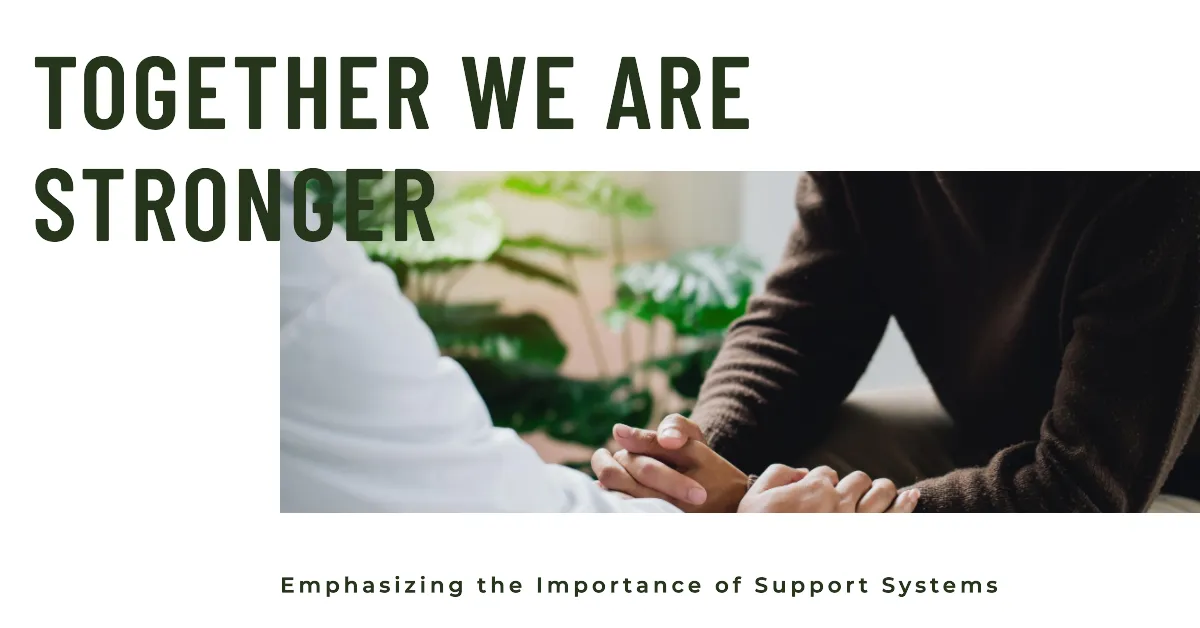Are you feeling stuck in your current situation? Do you feel like there’s more to life than what you’re experiencing now? It’s time to transform your mindset and start living the life you deserve. Mindset coaching tools can help guide you through this journey of self-discovery and transformation.
With the right mindset, anything is possible. You have the power within you to change your thoughts, beliefs, and actions that have been holding you back. By using these coaching tools, you’ll learn how to reframe negative thoughts into positive ones, set achievable goals, and develop a strong support system for yourself. So let’s dive into some of these powerful tools that will help transform your life.
Table of Contents
Key Takeaways
- Understanding your current mindset is crucial for personal growth and transformation.
- Practicing gratitude and positivity can uplift your spirits and improve your overall wellbeing.
- Setting SMART goals and creating action plans can help steer you toward your desired destination.
- Mindfulness and meditation can reduce stress and anxiety and improve overall wellbeing.
Understanding Your Current Mindset
You’re probably wondering, “What the heck is a mindset and how do I figure out what mine is?” Well, let’s start by breaking it down. Your mindset refers to the way you perceive and approach life. It encompasses your beliefs, attitudes, and thoughts about yourself, others, and the world around you. In other words, it’s your mental state or frame of mind.
Understanding your current mindset is crucial because it determines how you respond to challenges and opportunities in life. If you have a fixed mindset, for example, you might believe that your abilities are limited and unchangeable. As a result, you may avoid taking risks or trying new things because you fear failure or embarrassment. On the other hand, if you have a growth mindset, you believe that your abilities can be developed through hard work and dedication. This perspective allows you to embrace challenges as opportunities for growth and learning.
To identify your current mindset, start by paying attention to your self-talk or internal dialogue. What messages do you tell yourself when faced with difficulties? Do you tend to blame external factors or take responsibility for your actions? Another useful tool is journaling – write down any limiting beliefs or negative thought patterns that come up throughout the day.
Once you’ve identified your current mindset patterns, don’t beat yourself up if they’re not all positive – this is an opportunity for growth! With awareness comes the power to change. By intentionally shifting toward a more empowering mindset (such as a growth-oriented one), we can transform our lives in incredible ways! Remember: anything is possible with the right attitude – so why not choose one that propels us toward our dreams?
Practicing Gratitude and Positivity
Feeling grateful and positive can uplift your spirits and help you see the brighter side of things. If you are feeling down or stressed out, taking a few moments to focus on what you are thankful for can be incredibly powerful. Whether it is something as simple as having a roof over your head or being surrounded by loved ones, there is always something that we can appreciate in our lives.
Practicing gratitude on a regular basis can have numerous benefits for your mental health and wellbeing. It can help reduce feelings of anxiety and depression, increase self-esteem, improve relationships with others, and even boost physical health. One way to incorporate gratitude into your daily routine is to keep a journal where you write down three things each day that you are thankful for.
Positivity is also an important mindset to cultivate if you want to transform your life. This means focusing on the good in situations rather than dwelling on the negative aspects. When faced with challenges or setbacks, try reframing them as opportunities for growth rather than insurmountable obstacles. Surround yourself with positive people who lift you up and encourage you to be your best self.
Incorporating gratitude and positivity into your daily life may not be easy at first but with practice, it will become second nature. Start small by taking time each day to reflect on what you are grateful for and make an effort to focus on the positive aspects of situations when faced with adversity. Over time, these habits will become ingrained in your thinking patterns and lead to a more fulfilling and joyful life. Remember that transformation takes time, so be patient with yourself along the way!
Setting Goals and Creating Action Plans
Like a ship without a compass, setting goals and creating action plans can help steer us toward our desired destination. It’s important to have a clear idea of what you want to achieve in order to create an effective action plan.
Here are some tips to help you set achievable goals and create effective action plans:
- Start with an end goal in mind: Visualize your end goal and work backward from there. This will give you a roadmap for achieving your goal.
- Set SMART goals: Make sure your goals are Specific, Measurable, Attainable, Relevant, and Time-bound. This will help you stay focused and motivated.
- Break it down into smaller steps: Once you have your goal in mind, break it down into smaller tasks that you can accomplish on a daily or weekly basis.
- Hold yourself accountable: Set up regular check-ins with yourself or someone else to make sure you’re staying on track.
Creating an action plan involves more than just making a list of tasks. It requires prioritizing those tasks and determining the best way to complete them.
Here are some additional tips for creating an effective action plan:
- Prioritize your tasks: Determine which tasks are most important and prioritize them accordingly.
- Determine deadlines: Assign deadlines for each task so that you have a clear timeline for completion.
- Identify potential obstacles: Think about what could potentially get in the way of completing your tasks and come up with solutions ahead of time.
- Celebrate small wins along the way: Acknowledge each completed task as progress toward achieving your overall goal.
Remember that setting goals and creating action plans is not about being perfect or getting everything done perfectly. It’s about taking intentional steps toward achieving what is important to us. By following these tips, we can take control of our lives and move closer to our desired destination with greater ease and clarity.
Mindfulness and Meditation
Practicing mindfulness and meditation can bring a sense of calm and clarity to our chaotic lives, helping us to better understand ourselves and the world around us. Mindfulness involves being present in the moment, paying attention to our thoughts, feelings, and surroundings without judgment. This helps us become more aware of our thoughts and emotions so that we can respond to them in a more constructive way.
Meditation is a practice that involves focusing on something specific, such as your breath or a sound. It helps you develop concentration and awareness while reducing stress and anxiety. By practicing both mindfulness and meditation regularly, you can improve your overall wellbeing by reducing negative emotions like anger, fear, and sadness.
Mindfulness also encourages gratitude for the present moment instead of worrying about the future or dwelling on the past. When we are mindful, we appreciate what we have now rather than constantly striving for more. This shift in mindset leads to greater happiness and contentment.
Incorporating mindfulness and meditation into your daily routine may seem daunting at first but starting small with just a few minutes each day can make all the difference. Find a quiet space where you won’t be disturbed, sit comfortably with your back straight, close your eyes, or soften your gaze toward the ground. Focus on your breath or choose an object to concentrate on during meditation sessions. Over time, it will become easier to find peace in everyday experiences which leads toward freedom from stress-induced thought patterns thereby improving overall quality of life!
Practicing Self-Care

When it comes to practicing self-care, it’s important to prioritize rest and relaxation. This means taking the time to unwind and disconnect from stressors in your life. It also involves engaging in activities that bring you joy and developing a routine for self-care, so you can make it a regular part of your life. By prioritizing your wellbeing, you’ll be able to better manage stress and live a more fulfilling life. So take some time for yourself today and start making self-care a priority!
Prioritizing Rest and Relaxation
Stress is something that we all experience, but it doesn’t have to take over our lives. When you prioritize rest and relaxation, you give yourself the opportunity to recharge and rejuvenate your mind and body.
Making time for rest and relaxation can be challenging with our busy schedules, but it’s crucial for maintaining good health. This can include activities such as taking a nap, practicing mindfulness or meditation, reading a book, or spending time in nature. By prioritizing these activities, you are giving yourself permission to slow down and enjoy life without constantly being on the go. Remember that self-care isn’t selfish; it’s necessary for living a healthy and fulfilling life.
Engaging in Activities That Bring Joy
Engage in activities that bring you joy to improve your overall wellbeing and happiness. Often, we get so caught up in the busyness of life that we forget to make time for things that truly bring us joy. This can lead to feelings of stress, burnout, and even depression. By intentionally engaging in activities that bring us joy, we can recharge our batteries, boost our mood, and find a renewed sense of purpose.
Here are three ideas for activities that you might enjoy:
- Creative pursuits: Whether it’s painting, writing poetry, or playing music – engaging in creative pursuits is an excellent way to reduce stress and boost happiness levels.
- Outdoor adventures: Spending time outside has been linked to improved mental health and reduced anxiety levels. Consider going on a hike or spending time at the beach.
- Socializing with your loved ones: Spending quality time with friends and family is essential for maintaining strong relationships and improving overall wellbeing.
Remember, self-care isn’t selfish – it’s necessary for living a happy, healthy life. So take some time each week to engage in activities that bring you joy!
Developing a Routine for Self-Care
As you start building a routine for taking care of yourself, it’s like creating a sacred ritual that honors your innermost being and helps you stay grounded amidst life’s chaos. Self-care goes beyond just pampering yourself with bubble baths and massages. It is about developing habits that nourish your mind, body, and soul – giving you the strength to tackle whatever challenges come your way.
To get started on your self-care routine, consider using this table as a guide:
| Category | Examples |
|---|---|
| Physical Health | Exercise, healthy eating, sleep hygiene |
| Mental Health | Meditation, stress management, journaling, therapy sessions |
| Emotional Health | Gratitude practice, spending time with loved ones, practicing forgiveness |
Remember that self-care is not a one-size-fits-all approach – what works for someone may not work for you. Take the time to experiment and figure out what activities make you feel rejuvenated and refreshed. By investing in yourself through self-care practices, you are giving yourself the gift of freedom from stress and burnout.
Utilizing Support Systems

When it comes to taking care of yourself, it’s important to have support systems in place. This means seeking professional coaching or therapy when necessary, building a network of friends and family who provide emotional support, and being vulnerable enough to ask for help when needed. Remember that there is no shame in needing assistance, and utilizing these resources can greatly improve your overall wellbeing.
Seeking Professional Coaching or Therapy
If you’re struggling to make progress on your own, it might be time to consider seeking professional coaching or therapy. Sometimes, we need an outside perspective to help us see things in a different light and guide us toward the path of growth. Here are some reasons why seeking professional help can be beneficial:
- You can gain valuable insight into your thought patterns and beliefs that may be holding you back;
- You will have a safe space to explore difficult emotions and experiences without fear of judgment;
- You will receive personalized guidance and support from someone who is trained in helping people overcome challenges.
Remember, seeking professional coaching or therapy is not a sign of weakness, but rather a courageous step toward creating the life you want. With the right mindset coach or therapist, you can learn tools and strategies to transform your life and achieve greater levels of freedom and fulfillment.
Building a Supportive Network
Creating a strong network of supportive friends and family can feel like wrapping yourself in a warm blanket on a cold day, providing comfort and security during difficult times. Having people who understand your struggles and are there to lend an ear or offer guidance can be invaluable when you are trying to transform your mindset and make positive changes in your life.
Building a supportive network doesn’t have to be complicated. Start by reaching out to those who already play an important role in your life, whether it’s close friends, family members, or colleagues. Share with them what you’re going through and let them know that you could use their support as you work toward creating the life you want. By doing so, not only will they be able to offer encouragement and advice when needed but also hold you accountable for taking the necessary steps toward achieving your goals. Remember that transformation begins from within but having a tribe of supportive individuals cheering you on can make all the difference.
Being Vulnerable and Asking for Help When Needed
Sometimes, it can be scary to show our vulnerable side and ask for help when we need it. We may fear being judged or rejected by others, or feel like we are burdening them with our problems. However, being vulnerable and asking for help is a sign of strength, not weakness. It takes courage to admit that we don’t have all the answers and that we could use support from others.
When we open up and ask for help, we give others the opportunity to show us their love and compassion. We also create deeper connections in our relationships, as people often feel closer to those who trust them enough to share their struggles. So if you’re feeling stuck or overwhelmed, don’t hesitate to reach out to someone you trust and let them know how they can support you. You might be surprised at how much easier it is to overcome obstacles when you have a supportive team behind you.




